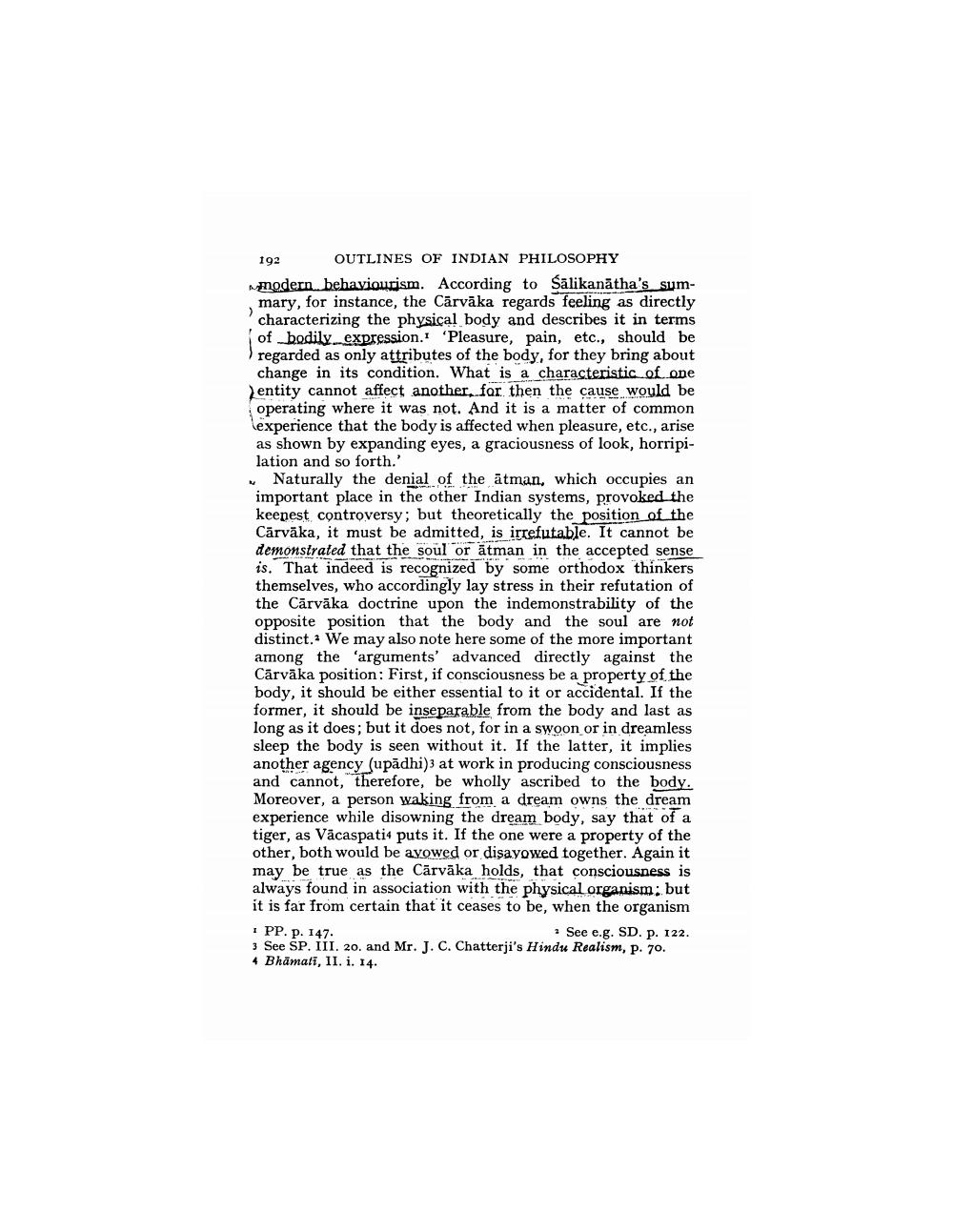________________
192
OUTLINES OF INDIAN PHILOSOPHY
modern behaviourism. According to Salikanätha's_summary, for instance, the Cārvāka regards feeling as directly characterizing the physical body and describes it in terms of bodily expression. 'Pleasure, pain, etc., should be regarded as only attributes of the body, for they bring about change in its condition. What is a characteristic of one entity cannot affect another, for then the cause would be operating where it was not. And it is a matter of common experience that the body is affected when pleasure, etc., arise as shown by expanding eyes, a graciousness of look, horripilation and so forth.'
Naturally the denial of the atman, which occupies an important place in the other Indian systems, provoked the keenest controversy; but theoretically the position of the Cārvāka, it must be admitted, is irrefutable. It cannot be demonstrated that the soul or ätman in the accepted sense is. That indeed is recognized by some orthodox thinkers themselves, who accordingly lay stress in their refutation of the Cārvāka doctrine upon the indemonstrability of the opposite position that the body and the soul are not distinct. We may also note here some of the more important among the 'arguments' advanced directly against the Cārvāka position: First, if consciousness be a property of the body, it should be either essential to it or accidental. If the former, it should be inseparable from the body and last as long as it does; but it does not, for in a swoon or in dreamless sleep the body is seen without it. If the latter, it implies another agency (upadhi)3 at work in producing consciousness and cannot, therefore, be wholly ascribed to the body. Moreover, a person waking from a dream owns the dream experience while disowning the dream body, say that of a tiger, as Vācaspati4 puts it. If the one were a property of the other, both would be avowed or disavowed together. Again it may be true as the Cārvāka holds, that consciousness is always found in association with the physical organism; but it is far from certain that it ceases to be, when the organism
1 PP. p. 147. See e.g. SD. p. 122. 3 See SP. III. 20. and Mr. J. C. Chatterji's Hindu Realism, p. 70. 4 Bhamati, II. i. 14.




